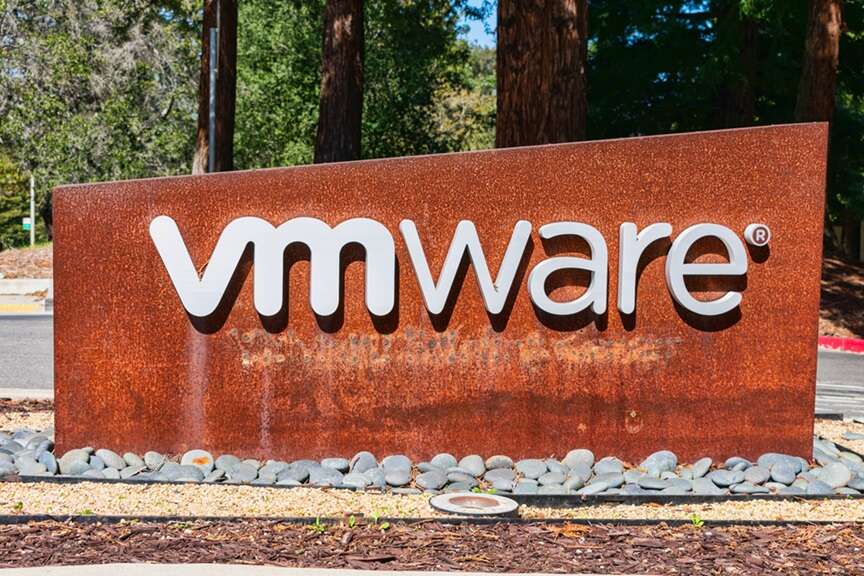In general, 2023 was a good year for VMware. With a vast market share, it lorded over the virtual machine (VM) space, generating revenue of over $13bn and continuing to ink deals across new markets.
Success was obvious beyond the balance sheet too. Hosting a pair of ‘VMware Explore’ conferences, and securing a range of industry plaudits, it felt fair to agree with Raghu Raghuram, the firm’s then-CEO, who in March 2023 said there was “consistent customer appetite” for the Palo Alto giant’s products.
Now, however, everything is different. Late last year, Raghuram left the firm he joined in 2003. Since then VMware has faced a storm of criticism, with long-time users appalled by price tweaks, licensing changes and abandoned partnerships. Lawmakers are getting involved too, with EU antitrust regulators now quizzing executives over their reforms.
Not that this is directly the fault of the organisation. In November 2023, it was bought for $69bn by Broadcom, a fellow California tech giant, and a company with a track record of squeezing new acquisitions for short-term profit.
Broadcom has since eased some of its more radical VMware proposals – but the disruption may prove epochal. “‘We’ve got to make some changes anyway,’” is how Mark Boost, CEO at cloud computing services provider Civo, characterises the mood of many industry insiders. “‘We’re going to potentially have to come off VMware and move somewhere else – is this an opportunity to actually modernise our infrastructure at the same time?’”
A fair point: despite its sterling reputation, after all, VMware has long struggled with the relative limitations of its offering, especially given the rise of plausible alternatives. And with many companies touting their own powerful container-based technologies, there’s no shortage of rivals hoping the chaos persists.

Salad days for VMware
Some months before its acquisition by Broadcom, VMware celebrated its twenty-fifth birthday. The milestone feels appropriate – for, according to Mukesh Ranjan, the company was “the pioneer” of VM software. Founded back in 1998, the IT services expert at Everest Group stresses that the company has grown to enjoy a “massive presence” across the enterprise landscape.
Not that the firm flourished on tradition alone. On the contrary, the technology it honed has proved hugely useful to corporates everywhere.
Allowing the representation of physical computers in ones-and-zeros, VMs afford companies the ability to deposit several machines on distant servers, saving space and money along the way. That, in turn, bolsters scalability: digitalisation means that staff can easily deploy new VMs based on demand. Combined with a plethora of other features – encompassing everything from disaster recovery to simplified testing – it makes sense that VMware should have thrived for so long.
Speak to insiders, though, and you get the feeling that, beyond the technology itself, the firm had enjoyed its 45% market share largely through robust customer service.
Ignoring industry enthusiasm for subscriptions, for instance, it offered a perpetual licence model, meaning customers only faced one-off charges. Unlike open-source VM alternatives, meanwhile, it seamlessly dealt with patches and code updates. No wonder Emil Sayegh, CEO at Ntirety, an American managed service provider using VMware technology, describes it as the “workhorse” of countless IT departments.
Yet that begs the question: if VMware was so successful, why was it sold? The answer, Ranjan suggests, can plausibly be understood in a single word: competition. “The struggle for VMware began over the last few years when public cloud came into the mix,” he says, explaining that some VMware customers started migrating their workloads to platforms like Amazon Web Services (AWS).
And if that hints at the limits of VMware’s model – whatever its strengths, for instance, it’s less appropriate for businesses aiming to renovate legacy systems – there are other signs that VMware’s long-term prospects were less than ironclad.
In 2015, to give one example, the company was fined for misleading pricing. More recently, it increased fees for some services by a tenth, perhaps unsurprising when it posted year-on-year growth of just 1% in 2022.
Price rises galore
In short, VMware shareholders may have felt a need to sell before their supremacy slipped – and in Broadcom, they had a buyer famous for largesse.
No less important, Broadcom’s corporate reputation has long rested on radically transforming new acquisitions. After buying CA Technologies, for instance, it ruthlessly laid off thousands of the tech firm’s staff, aggressively offloading platforms along the way.
To that extent, and notwithstanding the unhappiness Broadcom’s reforms have caused, they can probably be justified on their own terms. As Boost says, given Broadcom’s hugely ambitious growth targets, and the apparent ceiling on VMware’s organic growth, price jumps were likely inevitable.
But what jumps they were.
Unceremoniously dumping VMware’s treasured perpetual licences, Broadcom now expects customers to pay regular subscription costs. That’s echoed by the closure of over two dozen VMware products, even as others were bundled together, potentially forcing customers to pay for services they don’t even need.
The consequences here are eye-watering. Some VMware customers face price hikes of 1,200%, with organisations from education to healthcare all facing enormous bills. Nor are enterprises the only ones to suffer here: in December 2023, Broadcom announced a bonfire of VMware partner agreements, inevitably impacting vast numbers of managed service providers.
It hardly helps that Broadcom’s reaction to the furore has sometimes felt blunt. The multinational didn’t respond to Tech Monitor’s request for comment. But answering a paediatric hospital’s pleas for financial leniency, the company’s reply was simple and to the point: “VMware is not for everybody.”

Broadcom maintains that subscription pricing is the future
To be fair, Broadcom’s tone has softened of late. Perpetual licences may endure, while the company has promised more support for beleaguered partners.
Yet whatever changes are ultimately enforced, industry experts wonder about the long-term impact of the upheaval. “Whenever you are a staple like VMware,” says Sayegh, “and you are dealing with customers that require stability, it is important to also show stability in your posture, and how these programmes are getting rolled out”.
If Broadcom stumbles here, Sayegh adds, the competition may swoop. Aside from AWS and other public cloud options, that’s probably clearest at Nutanix, another California VM provider. Already boasting some 20,000 users, Nutanix now promises “a range of migration strategies” for new prospects.
With one in five VMware customers already claiming they’re planning to leave, moreover, this is a sector that suddenly feels very competitive.
Of course, actually moving is easier said than done: Boost concedes that, especially for large companies reliant on VMware for years, having to “completely re-architect” is tough. But beyond the general air of uncertainty, VMware’s rivals are stressing the practical advantages of jumping ship. Nutanix, for instance, argues that its customers can expect better integration with public clouds, as well as more flexible delivery models.
More than that, several experts see the VMware debacle as a golden opportunity for companies hoping to future-proof their virtualisation technology. One is Boost, who argues that container-based systems like Kubernetes are “far more portable” than VMware ever was.
As the head of a company offering Kubernetes-powered cloud services, you’d expect Boost to say that.
But others speak in similar tones. “We have a lot of our customers that operate within containers,” says Sayegh, speculating that the threat of containers partly explains VMware’s Broadcom deal to start with.
Factor in broader industry forecasts – container infrastructure software is predicted to enjoy a CAGR of 16.2% through 2030 – and we may be on the verge of a virtualisation revolution. Who knew licensing agreements could be so influential?





